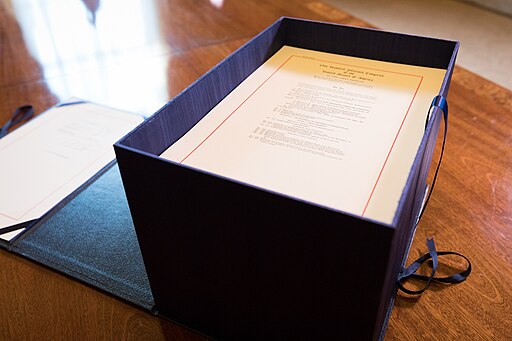“More than one country has descended into riot, revolution, coup or civil war territory over disputes about the integrity of its elections,” I wrote in 2016. “Think it can’t happen here? Think again.”
At that time, Donald Trump was busy making preemptive excuses (“we are competing in a rigged election”) for his expected loss in the 2016 presidential election. His opponent, Hillary Clinton, played the same game, whining that her prospective loss raised “national security issues” because the rigging gear was Made in Moscow.
Seven years later, American politics remains awash in “rigged election” rhetoric.
That rhetoric usually ignores the obvious, “rigging” by the nation’s two “major” political parties, which work overtime to prevent third party and independent candidates from even appearing on ballots. Instead, Democrats lean heavily into complaints of Republican “voter suppression,” while Republicans claim large-scale Democratic “voter fraud.”
As an outsider and anarchist who believes the US is in its period of terminal decline, I can’t bring myself to care very much which of those “major parties” runs the show or what dirty tricks it uses to get and keep the job.
On the other hand, few of us, no matter how pessimistic or cynical, really like the idea of riot, revolution, coup and civil war. Like God in the old saying, those things don’t care if you believe in them — they’ll wreck your day without regard to your political sentiments.
Two presidential elections after I called out that potential, the “rigged election” tune seems to be segueing seamlessly into its second verse: The advent of the strongman.
Even as he cracks wise about it and muses that it might just be for “one day,” former president and current Republican front-runner Donald Trump’s recent campaign schtick leans heavily into some Americans’ fear of — and others’ longing for — a totalitarian dictatorship, complete with revenge prosecutions of political enemies and mass roundups/detentions of immigrants and malcontents.
Trump’s likely opponent, incumbent Joe Biden, sticks more to themes of “democracy” and “the soul of America” when on the stump. But he’s given the imperial presidency he inherited a steroid injection. He’s already on the job of revenge prosecutions (of, among others Trump), bolstering the immigration police state, and instituting censorship in the name of “fighting disinformation.”
It’s difficult, at this point, to envision a freer, more peaceful, and more prosperous America within the confines of the existing political system. We’re sliding down the pole of history toward tyranny, as most polities do, and we’ve reached the portion of the pole that’s greased.
If we end up with a man (or woman) on horseback, our rightfully fraying faith in elections will be the horse. Politics will end up breaking us, unless we break it first.
Thomas L. Knapp (Twitter: @thomaslknapp) is director and senior news analyst at the William Lloyd Garrison Center for Libertarian Advocacy Journalism (thegarrisoncenter.org). He lives and works in north central Florida.
PUBLICATION/CITATION HISTORY



